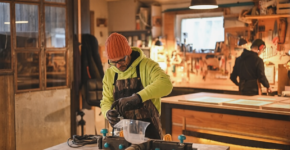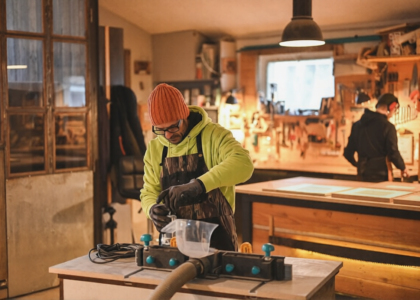Introduction
Adopting a zero-waste lifestyle is a powerful way to reduce your environmental footprint and contribute to a healthier planet. By focusing on minimizing waste, reusing resources, and adopting sustainable practices, you can significantly cut down on the waste your household generates. This article offers practical tips and tricks for embracing zero-waste living, including composting, reducing plastic use, and repurposing items.

1. Start with a Waste Audit
Before you dive into zero-waste practices, it’s helpful to understand your current waste habits. Conduct a waste audit by tracking the types and quantities of waste your household produces over a week. This will help you identify major areas where you can reduce waste and make informed decisions about changes to implement.
2. Reduce Plastic Use
Plastic waste is a significant environmental issue, but there are many ways to cut down on plastic consumption in your daily life:
- Opt for Reusable Products: Invest in reusable alternatives such as cloth bags, stainless steel or glass water bottles, and metal or bamboo straws. These items help reduce your reliance on single-use plastics. For more ideas, check out the Plastic Pollution Coalition.
- Choose Bulk Items: Purchase food and household products in bulk to reduce packaging waste. Many stores offer bulk bins for grains, nuts, and other staples. Bring your own reusable containers to fill up and avoid single-use packaging.
- Avoid Plastic Wrap: Use beeswax wraps, silicone lids, or glass containers instead of plastic wrap for storing food. The Zero Waste Home blog provides a variety of sustainable alternatives to plastic wrap.
3. Compost Organic Waste
Composting is a fantastic way to reduce the amount of organic waste that ends up in landfills. Here’s how to start:

- Set Up a Compost Bin: You can choose between a traditional compost bin, a tumbling composter, or a worm bin (vermicomposting). Each method has its own benefits, depending on your space and needs. For guidance on choosing a composting system, visit the EPA’s Composting Basics.
- Know What to Compost: Compostable items include fruit and vegetable scraps, coffee grounds, eggshells, and yard waste like leaves and grass clippings. Avoid composting meat, dairy, and oily foods as they can attract pests.
- Maintain Your Compost: Turn your compost regularly to aerate it and help it break down more efficiently. Keep the compost moist but not too wet.
4. Repurpose and Upcycle Items
Repurposing and upcycling are excellent ways to give new life to items that might otherwise be discarded:
- Get Creative with DIY Projects: Transform old clothing into cleaning rags, make planters from used jars, or create art from discarded materials. Websites like Instructables offer numerous DIY project ideas.
- Repair Instead of Replacing: Fix broken items rather than throwing them away. Learn basic repair skills for clothing, electronics, and furniture. For tutorials and repair guides, visit Repair Café.
- Swap and Share: Participate in or organize community swap events to exchange items like clothing, toys, or tools with others. This can help extend the lifecycle of items and reduce waste.
5. Adopt Minimalist Principles
A minimalist approach can complement zero-waste living by reducing overall consumption and clutter:

- Declutter Regularly: Periodically review your possessions and donate or sell items you no longer need. The Minimalists offer practical advice on living a minimalist lifestyle.
- Buy Quality Over Quantity: Invest in durable, high-quality items that will last longer, reducing the need for frequent replacements.
- Practice Mindful Consumption: Before making new purchases, consider if the item is truly necessary and if it can be sourced sustainably.
6. Educate and Advocate
Being an advocate for zero-waste living helps spread the message and encourages others to adopt sustainable practices:
- Share Your Journey: Document your zero-waste journey on social media or start a blog to inspire others and share tips.
- Support Zero-Waste Businesses: Patronize companies that prioritize sustainable practices and products. Websites like Zero Waste Store provide a range of eco-friendly products.
Conclusion
Adopting a zero-waste lifestyle requires commitment and creativity, but the benefits for the environment are substantial. By reducing plastic use, composting organic waste, repurposing items, embracing minimalism, and educating others, you can make a significant impact. Start with small, manageable changes and gradually incorporate more zero-waste practices into your daily routine. Every effort counts in the journey toward a more sustainable future.






